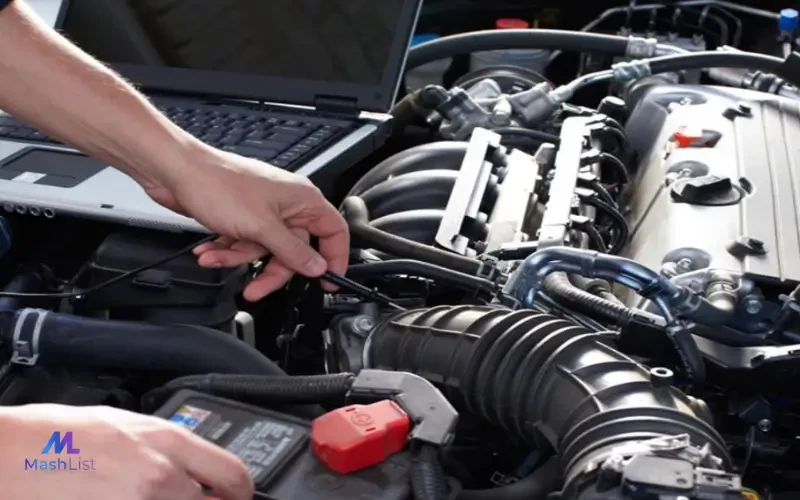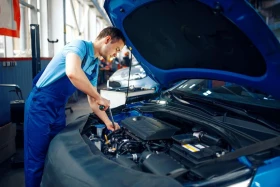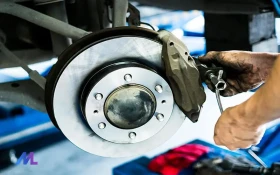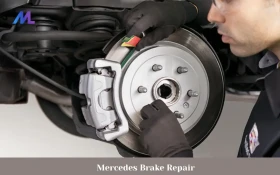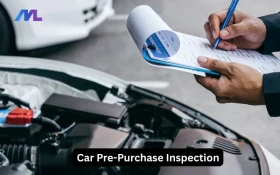Top Tips for Enhancing Your Car's Engine Performance
The car engine is like the heart of your car. It is a perfect combination of engineering, burning of fuel, and motion. Regardless of the type of car you have, like a sports coupe, a family car, or a tough SUV, tuning and keeping your engine in optimal condition helps driving become smoother, lowers fuel consumption, and an overall increase in your car’s lifespan. The aim of improving the engine is not to make your daily drive into a racing car; it’s to make it perform more, be more reliable, and be more responsive.
Here are some essential tips to boost the performance of your car engine, including straightforward maintenance habits and more complex tuning techniques.
Follow the Regulated Oil Change Routine
The lifeblood of your engine is the oil. It lubricates moving parts, cuts down friction, and helps to carry away heat. As time goes by, motor oil becomes dirty and its viscosity starts to decline, thus making the engine work harder and with less efficiency.
Performance improvement through:
The new oil will get all the things to work properly, and so fewer particles will be produced. A clean oil will also decrease the carbon buildup, which is detrimental to the performance.
Pro tips:
-
Use the oil change intervals recommended by your car manufacturer, which is typically every 5,000 to 10,000 km or 3-6 months, depending on usage.
-
Since synthetic oil can endure heat better and lubricate better, always use synthetic oil of high quality.
Replace the Air Filter
The engine needs oxygen to burn fuel efficiently. Therefore, an air filter that is clogged or dirty is a major restriction to airflow, which in turn can lead to incomplete combustion, no torque, and poor fueling.
Performance improvement through:
The increase with a high-performance air filter will deliver more oxygen to the engine. Therefore, it will have a better throttle response, more power when accelerating, and even a little increase in horsepower.
Pro tips:
-
Your air filter should be cleaned or replaced every 15,000 to 20,000 kilometers.
-
If the power increase is what you're after, think of investing in cold air intake systems, which allow more air into the engine and thereby enhance combustion.
Use Premium Fuel and Additives
Not all fuels are created equal; some are worse than others. Using cheap or low-octane fuel could lead to engine knocking and carbon deposits over time. Additives that work best with premium fuels can keep your fuel system clean and also improve combustion.
Effects on performance:
Super fuel provides the engine with better control and less unburned fuel, hence the improvements in throttle response. Additives, meanwhile, clean the injectors and help keep them from getting clogged with deposits, which would limit fuel flow.
Pro tips:
-
Every few months, use fuel system cleaners or injector additives.
-
If your vehicle is specified for high-octane fuel, then always choose the recommended grade for optimal performance.
Care for the Sparking Plugs and the Ignition System
Spark plugs are responsible for the combustion—the mixture of air and fuel—and if they are worn out or dirty, misfiring and weak ignition could take place, which results in poor acceleration and power loss.
Effects on performance:
New spark plugs mean ensuring that the combustion is effective, the engine idling is smooth, and it is more economical with fuel. Modern iridium or platinum spark plugs last longer and perform better than traditional copper ones.
Pro tips:
-
Replace the spark plugs every 30,000 to 60,000 kilometers, depending on the model and driving conditions.
-
Always inspect your ignition coils and wiring for corrosion or damage.
Maintain a Clean Fuel System
Fuel injectors can accumulate carbon and dirt over time. If this happens to your fuel injectors, the spraying pattern will be altered, and efficient combustion will be affected severely.
Effects on performance:
A clean fuel system will feed the engine with the correct amount of fuel, thus resulting in better throttle response and acceleration. Also, the cleaner injectors will lead to better fuel mileage.
Pro tips:
-
Have your fuel injectors cleaned professionally every 40,000 to 60,000 kilometers.
-
Using fuel line cleaners regularly will also help keep major buildups from occurring.
Maintain and Check Proper Tire Pressure
Proper tire pressures help the engine work more effectively, although it is not a core factor in an engine. Correct tire pressures reduce rolling resistance, and this makes the engine consume less energy when moving the car.
Effects on performance:
When the tire pressure is just right, your engine can transfer power to the wheels better, leading to better acceleration and better handling overall.
Pro tips:
-
Check the tire pressure at least once a month.
-
Always inflate the tires following the manufacturer's specifications (usually found on the driver's door frame or in the owner's manual).
Upgrade the Exhaust System
The exhaust system is responsible for the disposal of gases generated by combustion. The restriction of exhaust gas outlet affects the engine's power and efficiency.
Effects on performance:
The straightforward way for the gases to leave is through a larger and less restricted performance exhaust system. The broader diameter and fewer restrictions allow gases to escape, improving airflow and horsepower at the same time. Moreover, it may also enhance your car's sound, making it sporty.
Pro tips:
-
Think of cat-back exhaust systems for the noticeable power rise.
-
Always check if the exhaust system complies with local emission and noise regulations when upgrading.
Prevent the Engine from Overheating
Engines release high amounts of heat, but when this heat is not controlled, it can cause poor performance and long-term issues as well. If the engine is overheated, the performance drops and, in some cases, it can cause long-lasting problems.
Effects on performance:
The cooling system that operates well will keep the engine running in the best temperature range, which means proper fuel efficiency and power output.
Pro tips:
-
Regularly check your coolant levels and add if needed.
-
Coolant should be flushed and replaced every two years.
-
Check for any leaks or corrosion in the radiator, hoses, and water pump.
Tune the Engine Control Unit (ECU)
In modern vehicles, the ECU plays a major role as it manages the fuel injection, ignition timing, and the amount of air intake. The potential for optimization of power and fuel economy is achieved when the ECU is reprogrammed (or "remapped").
Effects on performance:
A professional ECU tune can unlock hidden horsepower, improve throttle response, and optimize torque curves—all while keeping everything within safety limits.
Pro tips:
-
ECU tuning should only be performed by a trusted professional.
-
You should note that incorrect tuning can void any warranties or even damage parts.
Frequently replace the Timing Belt and Drive Belts
The timing belts have the function of synchronizing the engine’s valves with the piston movement. If they break or wear out, major engine damage could occur.
Effects on performance:
Replacing the old belts will keep the engine timing correct, thus, better running of the engine.
Pro tips:
-
Timing belts should be replaced every 80,000 to 100,000 kilometers or according to the car manufacturer's recommendations.
-
Look for auxiliary drive belts and check them for frays or cracks.
Cut Down on the Engine Load and Weight
An engine that carries more weight has to be bigger and stronger. Spare parts on the vehicle that are not necessary or fit to a bigger size should not be installed as they will just increase the burden on performance.
Effects on performance:
When a vehicle's load is decreased, it becomes easy for the engine to deliver power effectively resulting in improvement both in acceleration and fuel economy.
Pro tips:
-
Remove roof racks and unnecessary cargo and avoid adding heavy accessories when not in use.
-
Keep the trunk space neat and as light as possible.
Absorb the Heat by Keeping the Engine Bay Clean
An engine bay that is dirty makes it difficult to breathe and also check for potential problems like leaks and corrosion.
Effects on performance:
Cleaning the engine bay regularly prevents the engine from overheating and helps to spot small problems before they turn into big ones.
Pro tips:
-
To clean safely, use a degreaser and a microfiber cloth.
-
Avoid spraying water directly onto sensitive electrical components.
Final Thoughts
Boosting your car’s engine performance doesn’t always mean major changes or complicated modifications. Sometimes, simple regular maintenance, timely part replacement, and proper solutions can lead to large improvements in power, efficiency, and reliability.
Not only does a well-maintained engine run better, but also, it can also save you money in the future. Whether it is through premium oil, air filter upkeep, or ECU tuning, every little step has a part in making the ride smoother, more responsive, and enjoyable.
Therefore, the first step must be the basics - take care of your car, and in return, it will serve you for a long time with excellent performance, reliability, and one-of-a-kind driving.
